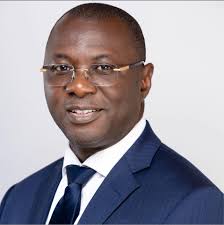By: Hamza Lansah Lolly/Baba Mohammed Issahaq ]
The former Minister of Finance and Member of Parliament for Karaga, Hon Dr Mohammed Amin Adam, has called on Parliament and state institutions to take decisive measures to combat illicit financial flows, which he says continue to drain Ghana’s economy and hinder development efforts.
Speaking on the floor of Parliament on Wednesday, Hon Dr Amin Adam described illicit financial flows as a global challenge that affects both developed and developing nations. He warned that the phenomenon is having a devastating impact on Ghana’s ability to fund essential services.
“Mr Speaker, illicit financial flows deepen poverty levels in developing countries because they deprive us of resources that could have been applied to education, health care, and general development,” he said.
The former Minister identified the extractive sector as one of the areas most vulnerable to such practices, describing it as “very opaque” and susceptible to financial malfeasance. He disclosed that Ghana loses an estimated 40 million dollars annually through illicit activities within the extractive industry alone.
Hon Dr Amin Adam further highlighted money laundering, tax avoidance, under-invoicing, and transfer pricing as some of the practices that exacerbate the problem.
While commending existing provisions in Ghana’s Income Tax Act that address certain aspects of financial misconduct, he urged Parliament to support future legislative amendments to strengthen the country’s legal framework.
“I hope this House will support the Finance Minister when he brings bills or amendments aimed at addressing illicit financial flows, so we can conserve resources to support national development,” he added.
The Karaga MP also proposed mandatory contract disclosure in the extractive industries, capacity building for oversight bodies, and enhanced international cooperation as key measures to tackle the issue.
He emphasised that a firm national response to illicit financial flows would help Ghana safeguard its resources and channel them into sectors that drive inclusive growth and sustainable development.


